(Our Russian friend Comrade Aleks brings us a new interview, this time with Rodrigo Poblete, guitarist/vocalist and a founding member of the Chilean band Lapsus Dei.)
Starting as a melodic death-doom band in 1998, the Chilean group Lapsus Dei went through some transformations during their career, and now the band stand on the threshold of a new metamorphosis.
Their discography isn’t that huge for a band who have celebrated their 20th anniversary –- two EPs, three full-length albums, and a split album with Officium Triste — but this initially anti-clerical doom is damned expressive and too strong to pass it by. So let me introduce you to the band’s only remaining original member — Rodrigo Poblete (guitars, vocals).
******
Rodrigo, you were one of those who formed Lapsus Dei in 1998, what motivated you to gather under this banner and begin to play this melodic version of death-doom metal?
Hi dude! In 1998 I came from classical music, and listening to bands like Therion, Orphanage, Tiamat. I really liked the mix of styles that doom metal can give you.
How soon did you find other members who shared your views towards this genre?
It was very fast. In Chile there are many musicians, in my city it was not different. It took me about three weeks, and the first fires were at four months.
Lapsus Dei recorded two demos, Wonderland (1998) and Dibujando Mi Karma (2001), and only in 2003 the first officially released EP, When A Dead Cry For His Soul… appeared. How did you work on this material?
In those times here, it was very difficult to record a demo. That EP was recorded precariously, and with a lot of effort; the sound result was not the best, but it put us on the map. We recorded it in a home studio, of a guy who knew the band from the beginning.
What kind of difficulties do you mean? Santiago is a capital — I bet there are a lot of studios where you can record whatever you want.
Yeah, but our first steps were in Temuco, a city in the south of Chile. Since we were young students, we did not have much money. And in Temuco there was only one professional studio, unaffordable for us. Now, with the new technologies, you can record an album in your house. In those times almost everything was analog technology with big equipment.
Did this official release draw more attention to the band? As I understand, it was released DIY, so how did you deal with promotion back then?
Yeah, it was totally homemade. A local producer liked the material, and produced 150 copies I think. With that work we did a tour of many cities in Chile. It was very special for us because, as I told you above, the launching of some musical work at that time was an important event.
Lapsus Dei – Dreams
The debut album Beyond The Truth (2005) was published by Rawforce Productions. Was it easier to continue with the label behind your back? Did it really help to support Lapsus Dei?
Yes of course, at a promotional level it made us known in many countries. In those times 5 or 6 metal discs appeared in a month — not like now, when there are 30 to 40 discs per month in the world of metal. The people of Rawforce, commanded by Claudio Cruces, behaved very well with us. They took out a lot of CDs and they helped us grow
What are your memories of the recording session for Beyond The Truth? Did you organize everything yourself? What was most difficult in this process?
The hardest thing was to be able to record in two different studios and make it sound congruent. We were fighting against time, so the work was done in two studios and the album was finished in a very short time. It was our first professional recording, so we were always left with a feeling that we could have done something else.
Why did you split this session into two parts? Did you try to record the album live, playing it as a whole band at once?
We divided it into two parts. The drums and bass, we recorded in Santiago (because I was living temporarily in that city, and the same for the bassist). Then I went back to Temuco and recorded the rest in that city. I returned to Santiago immediately with all the tracks recorded in Temuco, and we joined the material together with the sound engineer.
How did Chilean fans receive the band? Did you have an opportunity to play live more or less often? Was it worth of it?
We played a lot, especially in the south of Chile (Chile is a very long country, it looks like a worm). Until even today, to live with the fans is a fantastic task. They are very passionate on that side of the country, and do not forgive any fault. In the rest of the country and in other countries, they are more passive, more willing to simply listen and enjoy.
Your next EP, In Our Sacred Places (2010), was released by the Russian label Endless Winter. How did you find it? Were you satisfied with this collaboration?
I do not remember well how we found it or if they found us, but their boss Gennady is a great man. We managed to get attention in Russia, and that was a good thing, but we were not totally satisfied, which is why years later we recorded everything from zero.
Despite having some Spanish lyrics on early records, the second album Sadness Reflections (2013) consists only of songs with English lyrics. Why did you totally switch into English? And what kind of topics do you see as suitable for the band?
The truth is that we did not think about it on purpose, the lyrics were only born in that way. At first, the lyrics were quite anti-religious, especially because we came from a warrior people, the “Mapuche”, who faced the Spanish invasion. But now we prefer to focus on more personal and abstract concerns.
Does organized religion still inflict shit in Chile, or were you rather influenced by the mentioned invasion in the 15th century?
Both things. Here the church could never enter the Mapuche colonies. But they have done everything possible to indoctrinate all the new generations. Moreover, until less than twenty years ago, they were able to establish the rules of civil behavior, how you dressed, etc. Luckily, people slowly began to open their eyes.
Sadness Reflections saw the light of day eight years after the release of Beyond The Truth. What did the band do during this period besides recording the In Our Sacred Places EP?
We had several changes of members in those days, and that delayed us a lot. On the other hand we were also going through a musical evolution and we were not sure of the sound that we wanted. But we were definitely very active.
What made you re-record In Our Sacred Places with a new lineup as a full-length album? Were you finally satisfied with the result?
Yes, we had that concern. We wanted to give that work the importance it deserved, and the Mexican label Sun Empire, gave us the possibility of creating a double album. So, we recorded everything from zero, and we included a song that had been left out before for lack of budget. And we included a couple of cover songs from a band that we love (Lake of Tears). We recorded the DVD in the previous year in a theater. We were very satisfied with the work, and the fans loved it. In fact there are almost no copies of that album available.
How did you manage to get on the split-album Broken Memories together with Officium Triste?
The Chilean label Australis Records, gave us the possibility of recording a split with a band that we admired. So we agreed, and we contacted some bands that we liked from the first days. The guys from Officium Triste liked the idea very much, since they had been quiet for a long time, and we were in the middle of an evolutionary change. Then both bands agreed, and we think that an excellent work came out of that. We love the sound, and it is the foundation of change for the next album. We are very honored that a mythical band has agreed to work with us!
Can you tell that the band is well-known outside your country? How often do you play abroad?
I think the band was better known when they released Beyond the Truth in 2006. Now it’s almost impossible to compete against so many albums that come out every day. We have played a lot in Argentina, it is a debt that we have, and we have gone to Europe, USA, and Mexico. Because of our jobs and family it is very difficult to coordinate the time among everyone, but we are already in that.
After twenty years of changes, you remain the only initial Lapsus Dei member. Can you tell that the band keeps the same message, the same concept, after all these years despite everything?
No, the truth is that I do not believe that there is still the same message and concept, because each musician contributes in the life of the band. But there is a common thread, a way of composing that unites all the music of Lapsus Dei, and I hope that never goes away. We are all very proud of what we have achieved with so few tools.
The next album will be definitely the most important of our career, and we will begin the pre-production now in April. We are very focused on making the best material of our lives! We will take a definite leap in quality
Can you already tell what shape the new Lapsus Dei material will take? What is it like?
We are leaving the technical metal a little aside. We want to do simpler things (that does not mean that we will not worry over every last detail), so that the music flows with power and directly, without losing time in ornaments that would pass imperceptibly in the ears of a common banger. We are going to develop much more the clean voices, a kind of mixture between Katatonia and Alice in Chains, if we had to look for references.
Rodrigo, thank you for your time and energy. I wish you all the best with finishing the new album! How would you like to finish the interview?
We would like to thank all the people who have followed us in these twenty years, believing in our proposal, and putting up with our crazy ideas! We are an amateur band like many others, but with great luck and great fans. So we will always need your support.
Lapsus Dei – The Feeling Remains
http://www.facebook.com/lapsusdeifan/
https://lapsusdei.bandcamp.com/

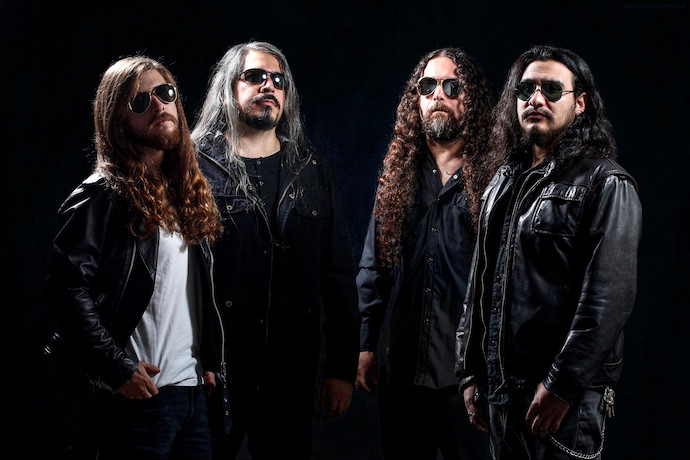
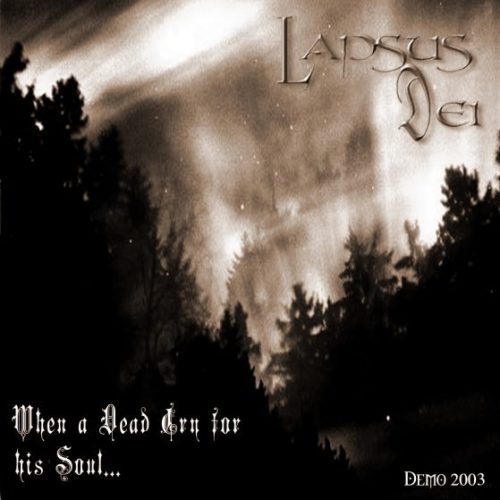
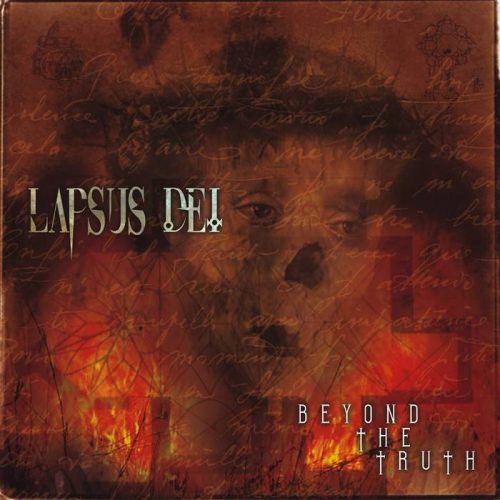
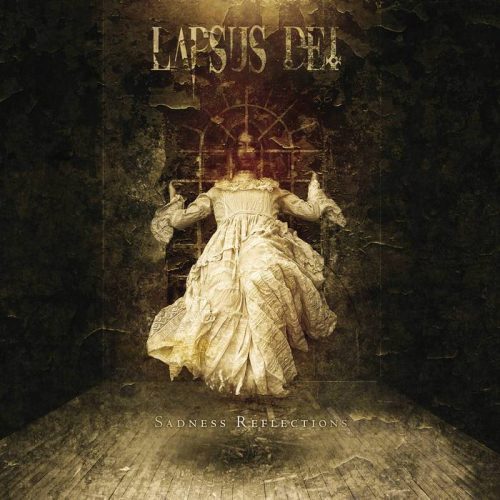
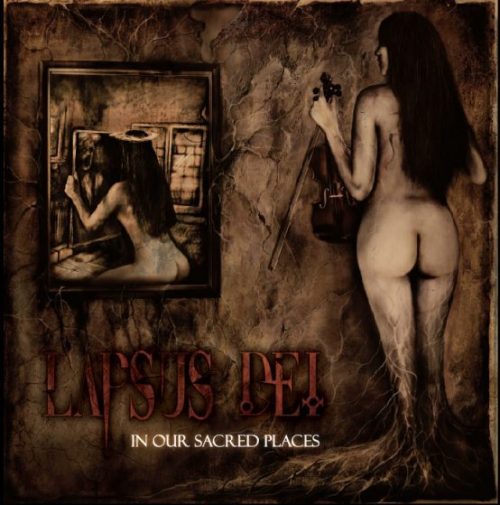

Chile is a great country full of beautiful people, like this dude!
Is it me or is there a real doom revival going on now?
(Though “doom revival” might be an oxymoron naHaha!)
Lemme stream these embeds and see what Rodrigo is up to!
I loved reading this. Made me want to visit Chile and listen to this band live, in addition to checking out the recordings.
El vocalista es un comerciante que te vende hasta las chapitas. Banda mala.